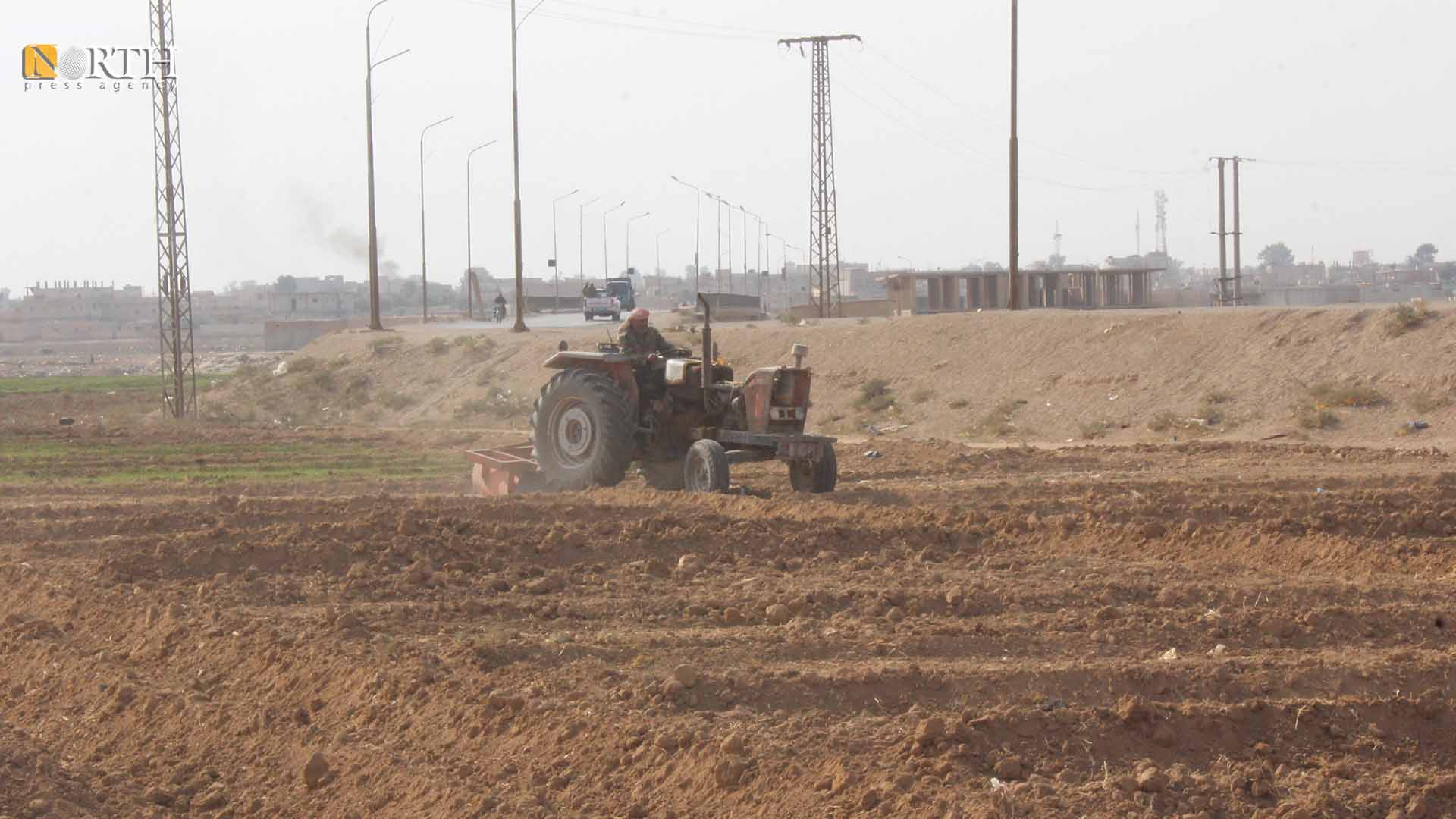SHADDADI, Syria (North Press) – Ali al-Hassan, a 44-year-old farmer in Shaddadi town, south of Hasakah in northeast Syria, has not yet been able to plant his 400-dunum-land as he has not received his designated seeds and fuel portion from the Autonomous Administration with subsidized prices yet.
Like al-Hassan, other farmers in his hometown could not also get their portions, and many of them cannot even buy cultivation supplies from the market due to high prices.
The farmers in Shadadi urge local and international organizations to provide them with appropriate seeds and fertilizer amidst their continuous fear to have deficit rainfall and material loss the same as the last year.
The majority of farmers in the southern countryside of Hasakah depend mainly on crops grown in winter such as wheat and barley as a source of income.
In turn, Nu’man al-Abdullah, co-chair of Shaddadi-based Agricultural Committee attributed the delay in distributing cultivation supplies to the scarcity of amounts and the non-completion of papers related to digging wells.
“Farmers are supported according to potentials,” he said.
“Only agricultural projects with clearance papers can get support, while we did not provide support for those lack papers on the banks of the Khabur river,” he added.
However, farmers who have got lands by the Khabur complain they were not granted clearance papers or cultivation supplies with subsidized prices from the Agriculture Committee. Therefore, they were obliged to buy supplies from the market with high prices.
Prices soar
Shaddadi-based Agriculture Committee decided that each dunum will get 30 kilograms of wheat seeds for 1,200 SYP per kilo and 25 kilograms of fertilizer for $ 350 per ton. Additionally, owners of tractors will get five liters of diesel for 90 SYP per liter.
It is worth mentioning that wheat seeds are sold in the market for 2,000 SYP per kilo, one kilo of barley is sold for 1,800 SYP, one liter of diesel costs more than 600 SYP and one ton of fertilizer is worth at $ 450.
Prices are too high to afford by farmers who have already took a hit last year, farmers complain.
Production of main crops like wheat and barley retreated last season in most areas in the Jazira region due to deficient rainfall and the Turkish government diminishing of water to flow towards the Syrian territories.
Scarcity of amounts
The Autonomous Administration of North and East Syria (AANES) stated the amount of wheat seeds in the warehouses do not fill the needs of all farmers in the region.
In a previous time, the United States Agency for International Development (USAID) announced it sent approximately 3,000 tons of wheat seeds to northeast Syria.
Yesterday, the USAID sent 37 tons of wheat seeds to Kobani as a first batch.
However, Salman Barudo, co-chair of the AANES Agriculture and Economy Board welcomed the decision of the USAID to send a quantity of wheat seeds for farmers to the region “but unfortunately the amount does not fill the gap.”
Oda al-Saleh, 35, is farmer who owns a land by banks of the Khabur river. He claimed he was forced to buy cultivation needs from the black market but with little amounts of fertilizer and seeds.
Al-Saleh is concerned the region might experience a catastrophe season in terms of agriculture in case the farmers were not granted the support needed.

